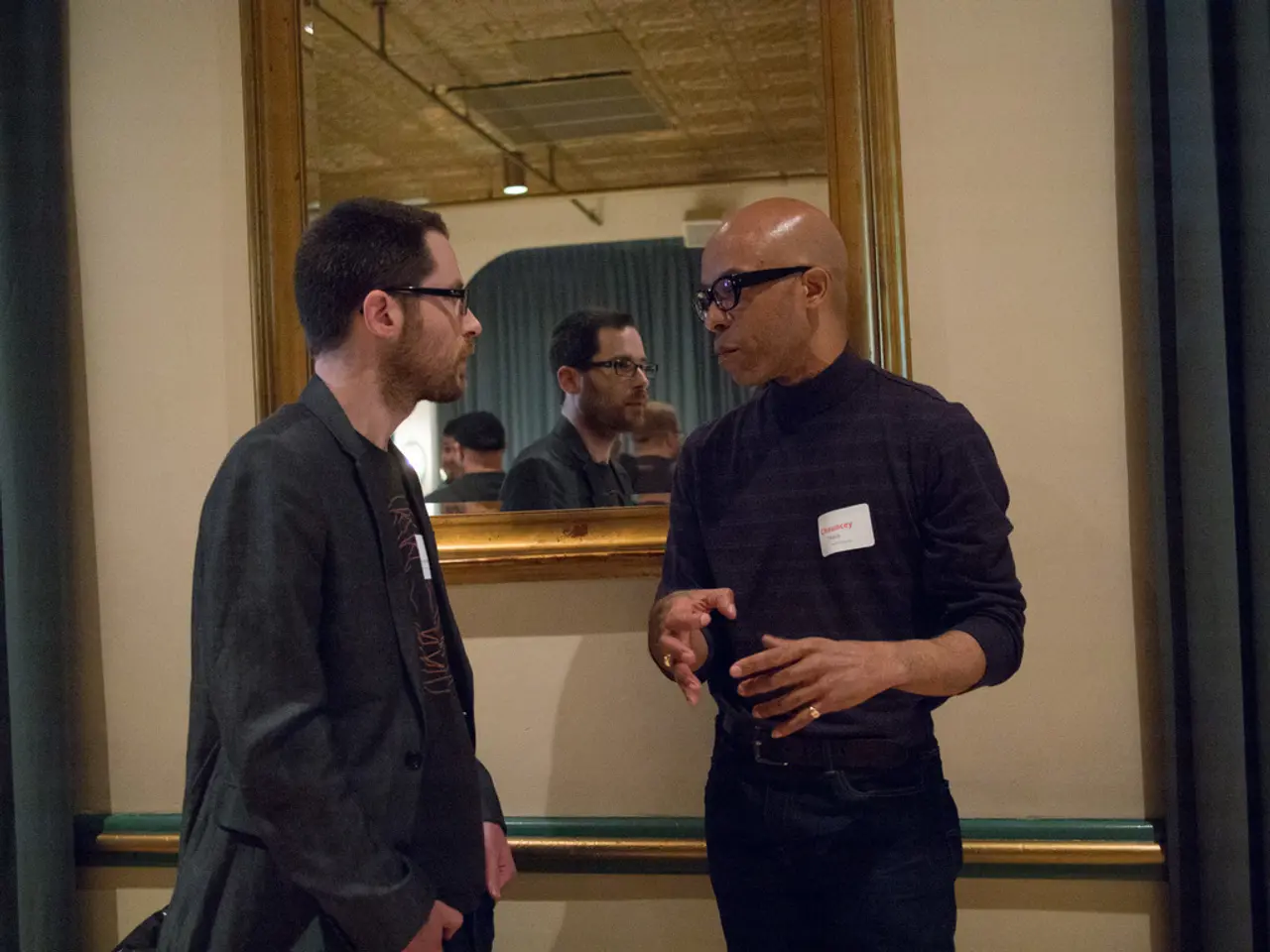Strategies for Displacing Deep-Seated Prejudice Against Races
In today's world, internalized racism can have a significant negative impact on mental health. This insidious belief system contributes to increased psychological distress, depression, anxiety, and lowered self-esteem, as well as fuelling racial trauma by causing individuals to internalize negative stereotypes and discrimination directed towards their racial group [1][4].
Fortunately, there are ways to address and heal from internalized racism. One of the most effective strategies is finding support from a community of people who share similar experiences and struggles [2]. This can provide a safe space to unpack harmful narratives and reclaim pride in one's identity.
Books, articles, videos, and podcasts on anti-racism and internalized racism can also be invaluable resources in your journey of stopping these internalized thoughts [2]. Questioning negative stereotypes you've been taught to believe can help heal from internalized racism [3].
Professional support from a culturally competent therapist can guide your journey to heal from internalized racism [4]. Our website provides licensed online therapists who can help you unpack internalized beliefs and reconnect with your identity on your own terms.
Cultural assets and ethnic-racial identity development can serve as protective factors, helping individuals reclaim positive self-views and counteract race-related stressors [5]. Family ethnic socialization—practices where families instill pride and knowledge about one’s culture and history—strengthens identity and resilience against internalized negative messages [5].
Facilitating open discourse and acknowledgment of racism rather than denial (which contributes to racial gaslighting) helps validate experiences and reduces isolation, empowering marginalized individuals [3]. Mental health interventions that are culturally informed and trauma-sensitive can assist individuals in processing experiences of internalized racism and developing coping strategies.
Community and societal-level changes to reduce racism and discrimination are essential for lowering the sources of internalized racism and its mental health impacts overall [1][3].
At our website, articles are written by experienced mental health-wellness contributors and are grounded in scientific research and evidence-based practices. They are extensively reviewed by our team of clinical experts to ensure content is accurate and on par with current industry standards. Trusted third-party sources are directly linked to in the text or listed at the bottom for easy access.
Recent research has shown that a strong sense of cultural identity can have positive effects on mental health. For instance, a 2018 study from New Zealand found that a strong sense of cultural identity in Māori youth was associated with better mental health [6].
In summary, internalized racism profoundly harms mental health by embedding discriminatory beliefs within individuals, increasing distress, and undermining well-being. Healing requires strengthening cultural identity, open recognition of racism’s impact, culturally competent mental health care, and broader anti-racism efforts to reduce discrimination and foster social trust.
A licensed therapist with a focus on mental health can guide individuals on their journey to heal from internalized racism, providing a safe space to unpack harmful narratives and reconnect with their identity. Engaging with health-and-wellness resources such as books, articles, videos, and podcasts on anti-racism and internalized racism can aid in questioning negative stereotypes and healing from internalized racism.




